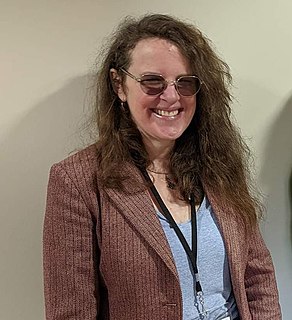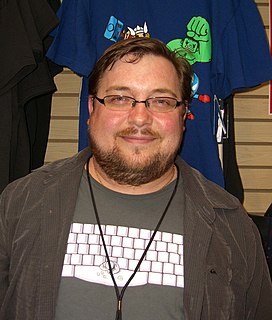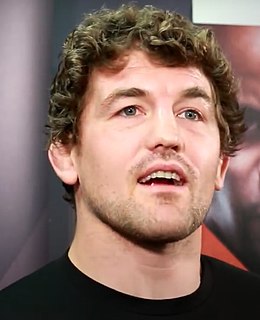A Quote by Adrian Tomine
Just in terms of being able to be a professional artist, but also it's nice to not have to dread introductions. "What you do for a living?" It used to be easier just to tell people that I was a magazine illustrator than try to explain that I did comics, but not the kind of comics that they were used to, and no, it's not pornography, etc. And now people even of our parents' generation are familiar with the term "graphic novel," which is kind of amazing.
Related Quotes
In early comics, you see the amazing awkwardness and bizarre reasoning in the storyline, and it's because comics hadn't really been invented yet. There was no format for them to follow. They were just making it up. So I try to incorporate that kind of awkwardness in my comics quite frequently, which is odd. In some ways, I can't be as awkward as I'd like. But I do think that's one way in which my comics are unusual, because I will try to make the artwork look bad, occasionally.
The graphic novel? I love comics and so, yes. I don't think we talked about that. We weren't influenced necessarily by graphic novels but we certainly, once the screenplay was done, we talked about the idea that you could continue, you could tell back story, you could do things in sort of a graphic novel world just because we kind of like that world.
I used to publish these stories in 32-page comics, and I would either do short stories or break the long ones up into chunks so there would be some variety inside the comic. But since then, people have been doing more and more long, standalone works, and the term 'graphic novel' has sort of become the codified term now.
There are a lot of good comics, no doubt, but as far as the quality of the comics goes, I think what you have is a bunch of situational comics - there are black comics that work only black crowds, gay comics that do only gay crowds, and southern comics that only work down South, and so on with Asian, Latino, Indian, midgets, etc. The previous generation's comics were better because they had to make everybody laugh.
I quit comics because I got completely sick of it. I was drawing comics all the time and didn't have the time or energy to do anything else. That got to me in the end. I never made enough money from comics to be able to take a break and do something else. Now I just can't stand comics. . . . I wish my work would be recognized by a larger crowd of people as more art than be stuck with the cartoonist label for the rest of my life.
I was going to be a storybook illustrator or an editorial illustrator. I ended up in a comics class by mistake because all the others were full, so I was like 'I'll stay for one class, and then I'll go take something else, because I don't care about comics.' I got pulled in really fast; I discovered I had a voice in comics that I didn't know I had.
As each generation comes up that doesn't have the habits for paper it's just easier and cheaper to get your stuff online. You know, people go to what they're used to. Certainly our generation, you know, we'll always want to have a magazine in our hands. We like that, but millennials didn't see the value in that necessarily.
































